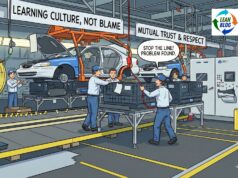Here's a sad article from the New York Times… the article link should make it free to read for non-subscribers.
Doctors Aren't Burned Out From Overwork. We're Demoralized by Our Health System.
As I posted on LinkedIn,
I can see parallels to other types of work, as well… but it's really sad to hear about doctors and other clinicians feeling demoralized or suffering from “moral injury.”
On Wednesday, I'm releasing an episode of the “Habitual Excellence” podcast… my interview with Dr. Wendy Dean, an expert on “moral injury” and co-author of the upcoming book If I Betray These Words: Moral Injury in Medicine and Why It's So Hard for Clinicians to Put Patients First.
From the Times article:
“One in five doctors says he or she plans to leave practice in the coming years.”
Why?
“Doctors have long diagnosed many of our sickest patients with ‘demoralization syndrome,' a condition commonly associated with terminal illness that's characterized by a sense of helplessness and loss of purpose. American physicians are now increasingly suffering from a similar condition, except our demoralization is not a reaction to a medical condition, but rather to the diseased systems for which we work.”
A quote from one physician:
“For me, doctoring in a broken place required a sustaining belief that the place would become less broken as a result of my efforts,” wrote Dr. Rachael Bedard about her decision to quit her job at New York City's Rikers Island prison complex during the pandemic. “I couldn't sustain that belief any longer.”
The author of the piece says:
“What's burning out health care workers is less the grueling conditions we practice under, and more our dwindling faith in the systems for which we work.”
Lean needs to be part of the solution. In a Lean culture, with a Lean management system, leaders would listen to (and seek out) the perspectives of clinicians and staff. They'd listen to those concerns and they'd respect them, instead of dismissing the concerns or ignoring them. They'd work to remove the waste, frustrations, and barriers (at least those that are within the control of the healthcare organization).
If you're working for an organization that says they want to embrace Lean, I could see parallels to the moral injury (or demoralization) that could exist Lean process improvement or culture change work, where somebody might say:
“For me, trying to drive improvement in a broken place required a sustaining belief that the place would become less broken as a result of my efforts…”
I hope you don't feel that way, as a clinician, or as a process improvement practitioner.
Please feel free to post a comment below or participate in the LinkedIn discussion:
If you’re working to build a culture where people feel safe to speak up, solve problems, and improve every day, I’d be glad to help. Let’s talk about how to strengthen Psychological Safety and Continuous Improvement in your organization.








